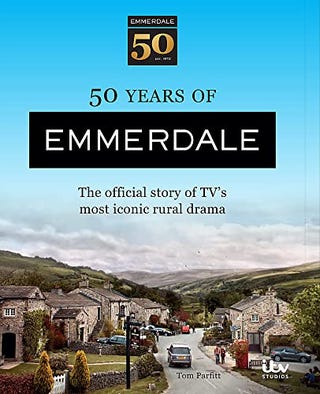Charlotte Brontë once wrote that an interpreter ought to have stood between her sister and the world, and Frances O'Connor's riveting feature debut Emily aims to accomplish just that.
Emily Brontë is an elusive figure who has long remained a mystery to biographers because details about her life are so sparse. Unlike many novelists of the 19th century, she did not keep a diary, and most of the information documented about her life has come from her elder sister Charlotte.
She did, however, leave behind one novel that's captivated a generation of readers, leaving her ripe for actress-turned-director O'Connor to blend fact with conjecture in order to fill in the blanks about Emily's short and reclusive life.
Despite the movie's speculative nature (if you want a biopic, then perhaps this isn't the film for you), O'Connor spins a convincing story that encapsulates Emily's vibrant spirit as readers have come to understand it through her seminal work, Wuthering Heights.
Emily opens with the author about to meet her maker and Charlotte – who had thought the novel to be "base and ugly" – asks her sister: "How did you do it? How did you write Wuthering Heights?"
With that, the premise of the movie is set, and we follow Emily (Sex Education star Emma Mackey) as she explores the relationships and landscapes that inspired her, and rebels against a society that strives to stifle her creativity.
Introverted and aloof, Emily is dubbed "the strange one" in her family. She would rather find solace in the surrounding moors of Howarth conjuring up stories and poetry than meet new people, to whom her prim and proper sisters call her "childish".
It's not long before her stern father demands she take up French lessons with his new curate, William Weightman (The Haunting of Hill House's Oliver Jackson-Cohen). Despite Emily's initial scepticism of William's Byronic allure, the two soon begin a secret love affair that's as passionate and doomed as that of Cathy and Heathcliff.
The references to Wuthering Heights can become a little too obvious at times, but O'Connor successfully finds a place for the gothic themes prevalent in Emily's work.
This is the case in one of the movie's most memorable sequences, in which Emily pretends to be inhabited by the spirit of her dead mother – to the point we almost believe she's actually possessed – when playing a masked guessing game with her siblings and William.
While sisterly rivalry and her forbidden love for William are established, it's the bond between Emily and her brother Branwell (Dunkirk's Fionn Whitehead) that's the most intriguing. He doesn't try to dampen Emily's individuality, rather his "freedom in thought" outlook encourages her.
Perhaps he's not the best influence. He has his own struggles, introduces his sister to alcohol and opium and involves her in his mischievous escapades, but they seem to be the only two characters who truly understand one another. It's both a joy and heartbreaking to watch.
Emma Mackey immerses herself into this role, capturing both Emily's intensity and ferocity. Emily's chief ally is William, and the chemistry between Mackey and Oliver Jackson-Cohen is magnetic on screen.
Nanu Segal throws the audience into Emily's environment for a visceral experience with moody weather and sweeping shots of the moors. Combined with Abel Korzeniowski's stirring score (which plays a crucial part throughout), it's easy to visualise the landscapes that had once sparked Emily Brontë's imagination.
It is possible that Wuthering Heights was born out of pure vivid imagination. After all, Emily's life was rather limited. But by blurring the lines between real-life and art, O'Connor does a compelling job of convincing us that, to some extent, she could have lived it too.
Emily is out now in UK cinemas.































